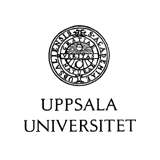Uppsala University
![]() Department of Information Technology
Department of Information Technology
Licentiate thesis 2008-001
Unwinding Processes in Computer Science Student Projects
Mattias Wiggberg
19 March 2008
Abstract:This thesis investigates computer science student projects and some of the processes involved in the running of such projects. The reason for this investigation is that there are some interesting claims concerning the use of projects as learning approach. For example, they are supposed to give an extra challenge to the students and prepare them for working life, by adding known development methods from industry the sense of reality is emphasized, and involving industry partners as mock clients also increases the feeling of reality, but still unclear if these features contribute to the students' learning and what can be done to increase the potential for learning. There are thus interesting pedagogical challenges with computer science student projects. There is a need to better understand the effects on learning outcomes as a function of how a student project is designed. The focus in this thesis is on the effects of role taking in the project groups, work allocation, and goal setting in student projects.
In this thesis, three studies investigating different aspects of processes in computer science student projects are presented. A number of conclusions are drawn, which serve as a starting point for further research.
The first study investigates how power is distributed within a group of students in a full semester computer science project course. Perceived competence of fellow students contributes to personal influence in the student project groups, and three qualitatively different ways of experiencing competence among other students have been identified.
The second study investigates experiences of the process of decision-making in a full semester computer science project course. Six categories describing the experience of decision-making have been identified spanning from the experience of decision-making in individual decisions too small and unimportant to handle by anyone else than the individual to the experience of decision-making as a democratic process involving both the full group and the context in which the group acts.
The third study investigates Swedish engineering students' conceptions of engineering, where dealing with problems and their solutions and creativity are identified as core concepts. Subject concepts, as math, and physics do not appear in any top position. "Math", for example, accounts for only five percent of the total mentioned engineering terms. "Physics", the second highest ranked subject term, only accounts for circa 1 percent.
By combining the results from the three studies, four central areas of general interest for designing and running student projects have been identified. These four features are: 1) the mechanism for work allocation; 2) students connection to external stakeholders; 3) focus on result or process; and 4) level of freedom in the project task. These four features are related to the results from the three studies in this thesis. The thesis is concluded by proposing an analytical framework based on those four features. The intention with the framework is to provide a useful tool for the analysis and development of future computer science student projects.
Available as PDF (3.73 MB)
Download BibTeX entry.
